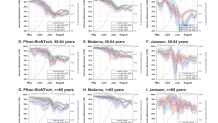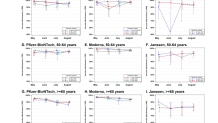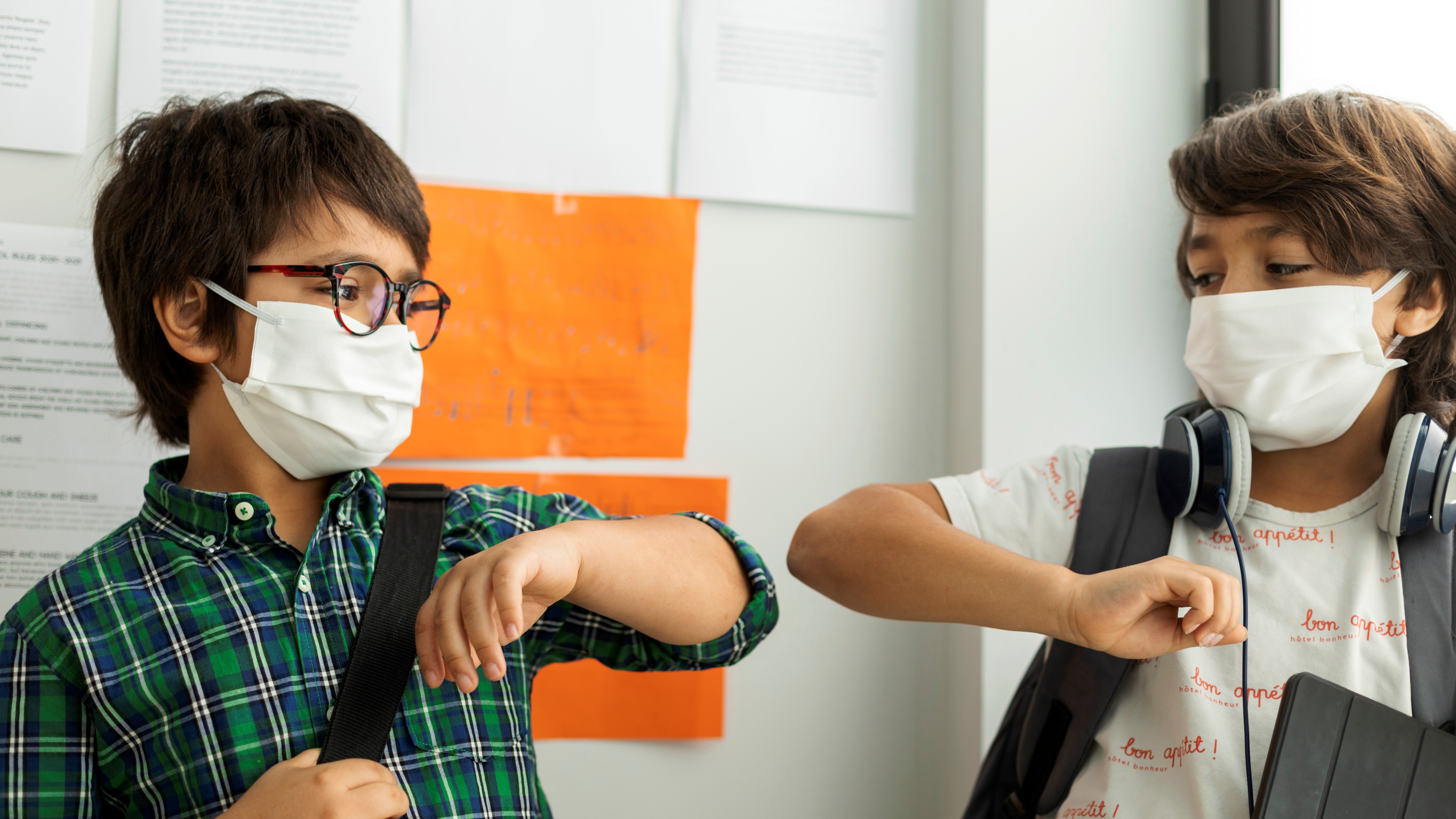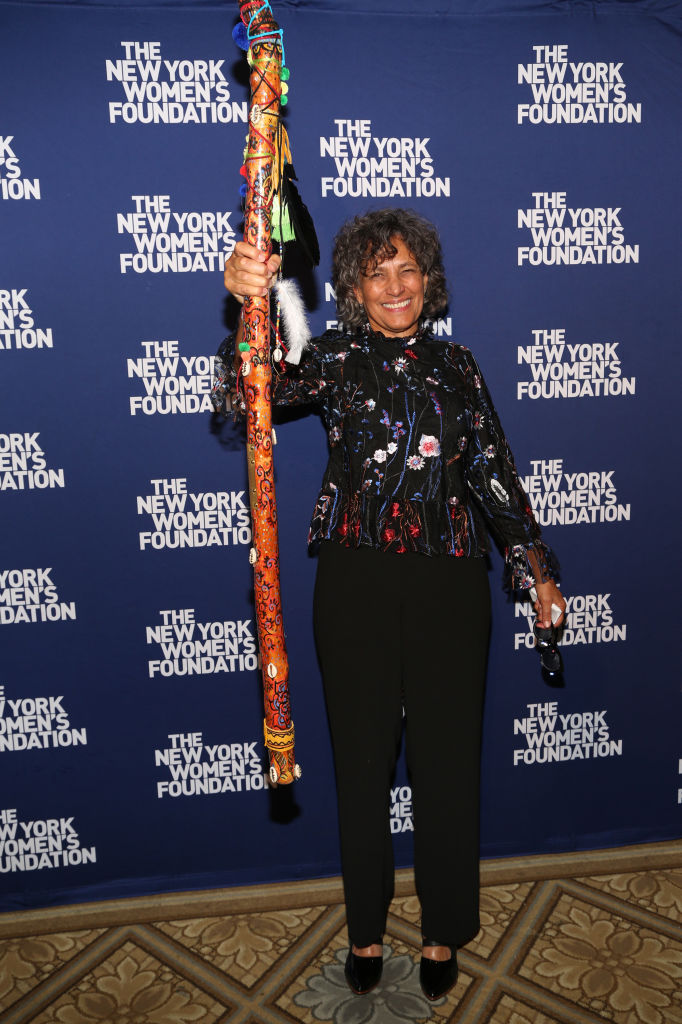What to Know
- New York state's Department of Health released Monday what it bills as the largest U.S. study by vaccine type and timing of vaccination conducted to date; it looks at nearly 9 million adult NYers
- Ultimately, researchers found modest declines in vaccine effectiveness against breakthrough infections may have been more driven by the delta variant and changes in behavior than immunological waning
- Researchers say that supports booster dosing recommendations by state health officials and the CDC; effectiveness of all three vaccines against breakthrough hospitalizations stayed high across the board
Changes in human behavior around masking and other COVID protocol plus the rapid pace at which the highly contagious delta variant spread this summer may have had more to do with vaccine efficacy declines than immunological waning, according to a New York State Department of Health study out Monday.
The preprint, non-peer-reviewed study finds all three federally emergency-use authorized vaccines continue to show strong effectiveness against reinfection and even greater success preventing severe breakthrough cases, with modest declines limited to Pfizer and Moderna recipients age 65 years and up, which supports targeted booster dosing recommendations, the department found.
In what outgoing New York State Department of Health Commissioner Dr. Howard Zucker bills as the largest U.S. study by vaccine type and timing of vaccination conducted to date, researchers assessed nearly nine million adult New Yorkers for potential vaccine effectiveness changes by age, product and month of vaccination.
Get Tri-state area news delivered to your inbox. Sign up for NBC New York's News Headlines newsletter.
They looked at people vaccinated in January through April 2021 and examined their levels of new diagnosed infections and hospitalizations from May to August 2021, compared to people who never received a single dose of any of the three vaccines.
Among the topline findings:
- Declines in vaccine effectiveness against lab-confirmed COVID infections were greatest for Pfizer-BioNTech recipients (-24.6% for those aged 18-49, -19.1% for those 50-64 and -14.1% for 65+) compared with Moderna (-18% vaccine effectiveness decline for 18-49, -11.6% for 50-64 and -9.0%) and Johnson & Johnson recipients (-19.2% for 18-49, -10.8% for 50-64 and -10.9% for 65+)
- Those declines happened simultaneously across age, vaccine type and timing groups during the weeks when the prevalence of the delta strain in New York and the country grew most rapidly; Pfizer recipients saw the greatest declines of the three vaccine types during that period
- Once delta topped 85% prevalence among all New York COVID strains, those variances plateaued. More recently vaccinated people were found to have higher protection levels in some groups, while modest continued declines were seen for the senior population, suggesting that particular variant and less intense personal prevention behavior heavily contributed to effectiveness declines
- Vaccine effectiveness against hospitalization for adults age 18-64 held at 86%-plus across ages with no trend over time; among those 65+, effectiveness declined from May to August for Pfizer (95% to 89.2%) and Moderna (97.2% to 94.1%) recipients. J&J recipients saw lower effectiveness overall, ranging from 85.5%-82.8% with no differential related to the time period studied
Vaccine Effectiveness vs Infection by Type, Age, Timing

Vaccine Effectiveness vs Hospitalization by Type, Age, Timing

“This latest study conducted by our renowned scientists here at DOH is the largest to examine in-depth changes in vaccine effectiveness over time broken down by all three COVID-19 vaccines types currently authorized for use in the United States,” Zucker, senior author of the study, said in a statement announcing its release.
“It clearly demonstrates what we've been saying all along -- getting a COVID-19 vaccine continues to be the best way out of this pandemic, and the best way for New Yorkers to prevent serious illness and hospitalization," he added.
Lead study author Dr. Eli Rosenberg of the Department of Health said the research supports the need for vaccine booster doses among older people in particular. He noted that while there was evidence of early vaccine effectiveness declines against reinfection for younger people, that leveled off once delta established dominance.
"Together, this suggests that ongoing waning protection may be less of a current concern for adults younger than 65 years," Rosenberg said.
Currently, Pfizer is the only manufacturer whose vaccine booster is federally approved for emergency use in the United States. Johnson & Johnson filed for emergency use authorization of its vaccine booster last week. The FDA is set to debate the merits of both J&J and Moderna boosters later this week.
Learn more about who is currently eligible for booster doses in New York here and get answers to the most frequently asked questions on those shots here.
New York state debuted its first public COVID breakthrough and variant trackers late last month. As of the latest update, the state has reported 95,146 lab-confirmed breakthrough COVID cases, which represents just 0.8% of the fully vaccinated eligible population. It has reported 6,567 breakthrough hospitalizations among that eligible population (0.06%) as of Oct. 3 as well.
The state's dashboards support researchers' contention in this latest study that vaccine effectiveness did decline in terms of breakthrough infections through at least mid-July but then ebbed. Vaccine effectiveness against breakthrough hospitalizations remained consistently strong in the face of the delta variant.
More on COVID-19
That variant accounted for 99.8% of all confirmed COVID cases sequenced in New York during the latest two-week period of study (Sept. 12-25), up from 99.5% in the previous two-week period, state data shows. Delta's prevalence soared in July but has been consistent over these last few months.
Clearly, as Zucker and others say, the risk is far higher for unvaccinated New Yorkers than vaccinated ones, no matter the age or time period of study.
In the week of Sept. 13, the latest time period available on the state's dashboard, fully vaccinated New Yorkers had a 78.6% lower chance of becoming a COVID-19 case compared with unvaccinated New Yorkers. That compares with a 91.9% differential for the week of May 3, which was before delta's exponential rise.
In terms of COVID hospitalizations, fully vaccinated New Yorkers had between an 89.7% and 95.2% lower chance of being admitted compared with unvaccinated New Yorkers across the full analytical time period.
To date, more than 76% of New Yorker's adult population is fully vaccinated, while 85.1% of adults in the state have received at least one dose. Among those eligible, kids ages 12 to 15 are far less likely to have completed their series (54%) compared with the next two cohorts (62.9% for those age 16-25 and 65.5% for those age 26-34). Nearly two-thirds of kids age 12-15 have had at least one dose.



